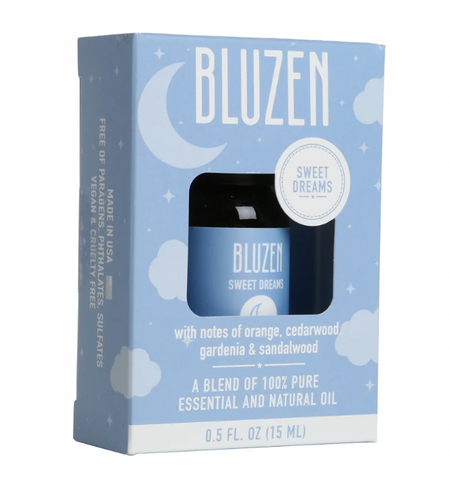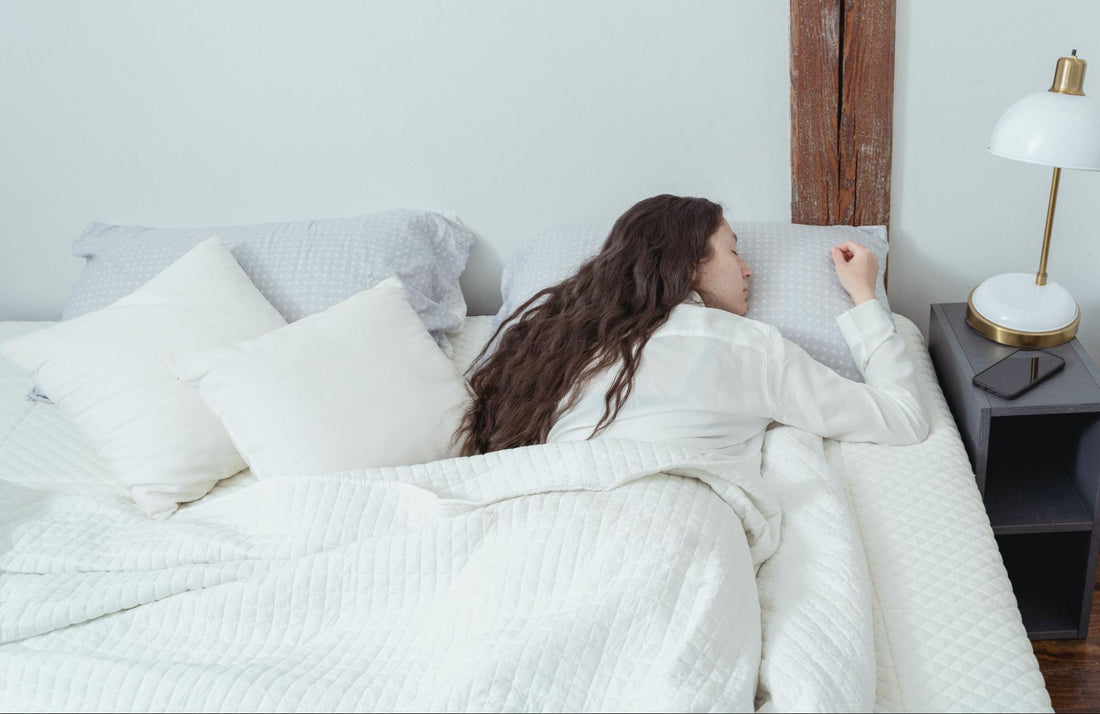When sleep accounts for one-quarter to one-third of your life, it’s important to make sure those precious hours are spent in good sleep.
Research shows that a good night’s sleep leads to
- Improved mental function
- A healthy heart
- Better moods and managed stress
- A restored immune system
With all of the proven benefits, we reviewed and researched the top seven tips from sleep experts to find your “Best Slept Self.” From supportive neck pillows to natural sleep aids that work, here is our list:
1) Establish the Ultimate Wind-down Routine
“Our body craves routine and likes to know what’s coming,” says Dr. Lawrence Epstein, chief medical officer of Sleep HealthCenters and professor of medicine at Harvard. Schedule a time to begin your bed routine every night. A good bedtime routine can include a warm bath, soft music or white noise, evening meditation, stretching and breathing exercises, and ensuring all the screens are put away well before it’s time for bed.
2) How to Use Lavender Oil for Sleep
One of the best natural sleep aids — and a perfect addition to a wind-down routine — are essential oils. If you struggle to sleep because of things like anxiety, oils like lavender for sleep aid or sandalwood promote relaxation and encourage a peaceful environment. Our sense of smell is directly linked to the brain’s center of emotion. Aromatherapy effectively promotes better sleep by calming the body and mind and can be diffused using a diffuser or just sprinkling a few drops of oil onto your pillowcase. So, if you’re wondering how to sleep better with anxiety, these specific oils have anxiety-relieving properties, making them a wise step in your wind-down routine.

3) Create the Proper Sleep Environment
Keep the area surrounding your bed dark and cool. Sleep psychologist Michelle Drerup, PsyD, explains that “heat is a huge disruptor of REM (rapid eye movement) sleep.” Whether the room is too hot or too cold for sleep is subjective. For every person, “cool” may look like a different degree. Choose the temperature that’s right for you. To keep the room dark, you can use an eye mask or room darkening shades.
4) Invest in Supportive Memory Foam Pillows
Aside from a proper neck pillow, consider other specialty pillows that can support a more comfortable sleep. Pillows like:
- A knee pillow designed for better circulation, pain relief in your joints, and improved spinal alignment
A leg pillow or pregnancy pillow designed to alleviate pain in the hips and knees and reduces stress on the lower back.

Daytime Tricks for Better Sleep
Some of the best natural sleep aids start well before bedtime! How you spend your wake hours directly affects how you sleep. The National Sleep Foundation provides three foundational principles that encourage restful sleep:
5) Get Enough Sunlight

Spending several hours in sunlight, natural light, or an equivalent brightness is an important factor in regulating a person's circadian rhythm and temperature. If you work in an office or spend most of the daytime hours indoors, schedule time for a walk outside or have lunch in a park.
6) Exercise Regularly
If you’re someone who tosses and turns in bed, regular exercise is proven to cut down the time it takes to fall asleep and reduces any daytime sleepiness.
Charlene Gamaldo, M.D., medical director of Johns Hopkins Center for Sleep at Howard County General Hospital explains that when you engage in at least 30 minutes of moderate aerobic exercise, you can find a difference in sleep quality that very night. Slow-wave sleep is that deep sleep, where your brain and body can reset and refresh. Moderate aerobic exercise increases the amount of slow-wave sleep you get! Fit in just 30 minutes of exercise a day for improved sleep.
7) Stick to a Consistent, Healthy Mealtime Routine
Your body’s food clock and sleep clock are closely linked! Try your best to eat when your body is anticipating food. Eating your meals at varying times of the day, every day, confuses your internal body clock. This makes it difficult to maintain proper, regular sleep and wake schedules. Be consistent, skip the midnight snack, and try to sit down for dinner a few hours before it’s officially time for your head to hit your pillow.
How Can BluZen Support Your Best Sleep?

In 2022, everyone is well aware of the need for good sleep. Yet, 35.2% of all U.S. adults report sleeping under the recommended average of seven hours per night. For more sleep and better sleep, begin your restful wellness journey with a great memory foam pillow, or add some calming lavender oils into your wind-down routine. Use as many of BluZen’s research-proven tips and tricks to support your “best-slept self.”

